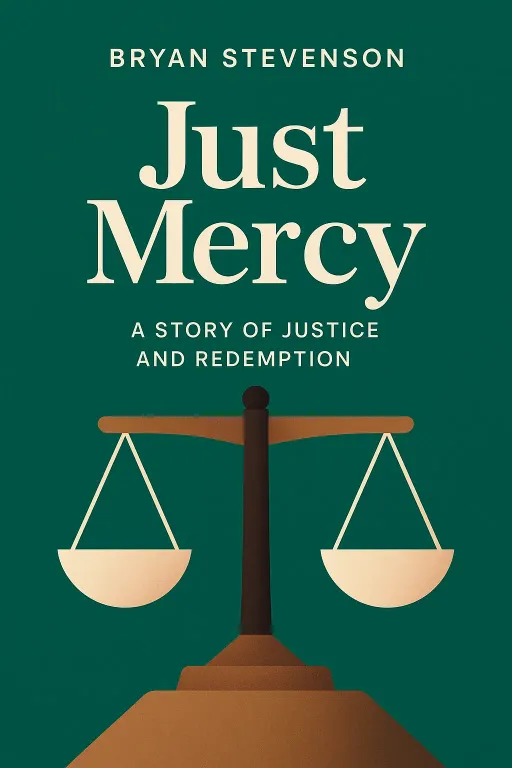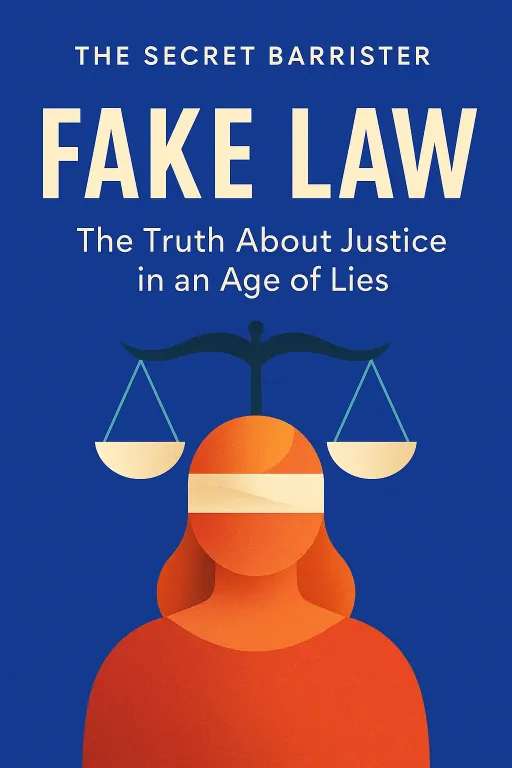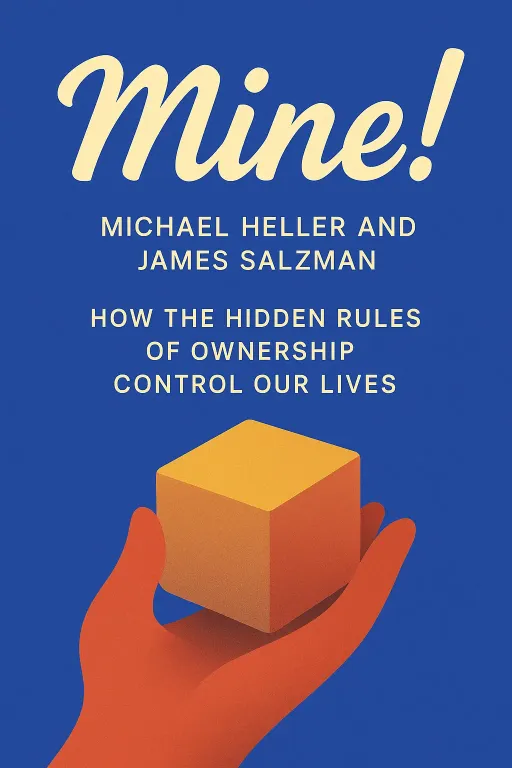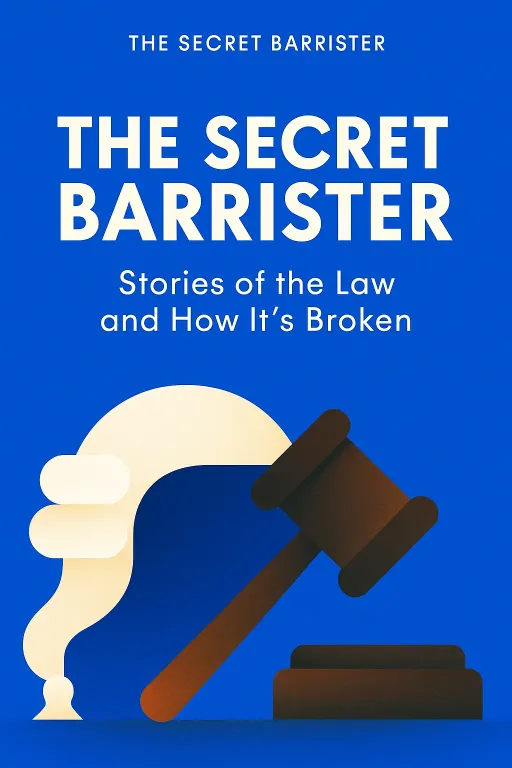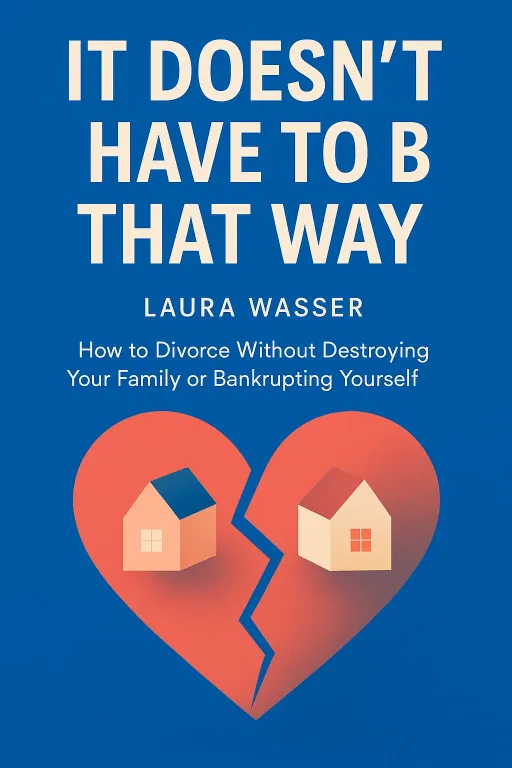
The Dead Roses Divorce
13 minGolden Hook & Introduction
SECTION
Michael: The average litigated divorce in America can easily cost tens of thousands of dollars. But our author today argues the biggest expense isn't the lawyers—it's pettiness. One client's decision to send dead roses on Valentine's Day ended up costing him more than a house. Kevin: More than a house? For a bouquet of dead flowers? Come on, that can't be real. That sounds like a scene from a dark comedy. Michael: It's absolutely real, and it's the kind of cautionary tale that fills the pages of the book we're diving into today: It Doesn't Have to Be That Way: How to Divorce Without Destroying Your Family or Bankrupting Yourself by Laura Wasser. Kevin: Laura Wasser... wait, isn't she that super famous divorce lawyer for celebrities in Los Angeles? The one they call when a major Hollywood couple splits? Michael: Exactly. She's known as the "disso-queen," short for dissolution, and she has handled some of the most high-profile breakups imaginable. She poured decades of that experience, from A-listers to everyday people, into this book to make a powerful argument: divorce in the 21st century doesn't have to be a financial and emotional train wreck. It's a modern playbook for a civilized ending. Kevin: A civilized ending. That feels like an oxymoron when you're talking about divorce. Most people think of it as all-out war. Michael: And that's the exact mindset she wants to dismantle. That dead roses story perfectly illustrates her first, and maybe most important, principle. It’s all about how you start.
The Mindset Shift: Divorce as a Civilized Dissolution
SECTION
Kevin: Okay, I have to hear this story. How does sending flowers, even dead ones, lead to financial ruin? Michael: It’s a masterclass in what not to do. The husband decided he wanted a divorce. So, on Valentine's Day, he had a courier deliver a large box to his wife. When she opened it, she found a dozen long-stemmed roses, all dead and decaying. And impaled on one of the thorns was the court summons, officially starting the divorce. Kevin: Oh, man. That is ice cold. That's not just starting a divorce; that's a declaration of war. Michael: Precisely. And it poisoned everything that followed. The wife, understandably, was hurt and furious. Any chance of an amicable, quick, or cheap resolution went out the window. The case dragged on for years, racking up insane legal fees. Every single issue, from who got the blender to the custody schedule, became a bitter fight. All because he chose to start with a moment of vindictive theater. Kevin: So that one petty act literally set the tone for years of misery and expense. Michael: Exactly. Now, contrast that with another story she tells about a client she calls "Zack," a bass player for a rock band. She's on the phone with him one morning to discuss a settlement offer, and she hears this weird bubbling sound. She asks what it is, and he casually says, "Oh, that? I'm just taking a bong hit." Kevin: Wow. Okay, so one guy sends dead roses and goes broke, and the other is getting high during a legal call and it's... fine? What is the actual takeaway here? Michael: The takeaway is about mindset. Wasser was initially annoyed, but then Zack explained his philosophy. He said, "Look, this sucks. But I have my health, I have my music, I have my kids. It's all good." He had this Zen-like acceptance of the situation. He wasn't fighting for the sake of fighting. He was focused on getting it done and moving on. And because of that attitude, his divorce was faster, cheaper, and far less stressful. Kevin: That's a powerful contrast. It’s not about the specific action—sending roses or smoking a bong—it’s about the underlying intent. One is about inflicting pain, the other is about managing your own. Michael: You nailed it. Wasser's core point is that the initial tone dictates the entire process. Amity produces financial advantage. Rancor costs money. Every angry email to your ex that your lawyer has to read, every pointless court filing just to make a point—you're paying for that. The lawyers profit from your inability to resolve issues. Kevin: But how do you actually have that first conversation? It feels impossibly awkward. What do you say? "Honey, we need to talk, and by the way, let's be super business-like about dismantling our lives"? Michael: She says you have to plan it. Don't do it in the heat of an argument. Choose a calm, neutral time. And most importantly, if you can, present a united front, especially if you have to tell kids. The goal isn't to win the breakup announcement; it's to set the stage for a process you can both survive without going bankrupt. It’s a business deal, and the business is the dissolution of your partnership. Kevin: A business deal that happens to be gut-wrenchingly emotional. That's the tricky part. Michael: It is. But framing it that way, as a transaction to be managed, is the first step toward keeping those emotions from running the show and emptying your bank account. And once you've set that civil tone, the real work begins, especially when kids are involved. This is where Wasser says most people really lose their minds: custody.
The Practical Playbook: Navigating Custody and Support with Sanity
SECTION
Kevin: Right, because that's where it stops being about money and starts being about your children. The stakes feel infinitely higher. Michael: They are. And this is where Wasser introduces another crucial reframe. She says parents get obsessed with what's "fair" to them—a 50/50 time split, equal holidays. But the real question is, what's fair to the child? Their world is being turned upside down, and their primary need is stability, not a mathematically perfect schedule. Kevin: That’s a great point. A kid being shuttled back and forth every two days just so the parental spreadsheet looks "equal" might be terrible for the kid. Michael: Exactly. And this is where you get the "Disneyland Parent" phenomenon. She tells a story about a couple where the mom was the primary caregiver during the marriage—she handled homework, bedtimes, nutrition. The dad was the fun guy. After the divorce, they split custody 50/50. Kevin: I can see where this is going. Michael: Yep. During his week, the dad’s house was a free-for-all. No bedtime, junk food for dinner, no homework checks. The kids would show up for mom's week exhausted, unprepared for school, and completely out of sorts. The dad wasn't being malicious; he just didn't know how to be the "structure" parent. Kevin: The Disneyland Parent! I know people like that. One parent has all the rules, the other has all the fun. How do you even solve that without it turning into another huge fight? Michael: Wasser's advice is to focus on the truly important, non-negotiable principles, especially on school nights. You don't have to have the exact same rules, but you need a baseline agreement on things like bedtime, homework, and basic nutrition during the week. You have to let the small stuff go. If he lets them have an extra cookie on a Saturday, fine. But if they're showing up to school on Monday like they just came back from a rock festival, that's a problem you have to address as co-parents. Kevin: It’s about picking your battles. And the battle should always be for the child's stability, not your own parental ego. Michael: Precisely. She even tells a tiny story about a "Potty-Training Disparity," where one parent was diligently potty-training and the other was just putting the kid back in diapers during their time because it was easier. That inconsistency is confusing and detrimental for the child. It’s these small, seemingly minor things that can escalate into major wars if you're not communicating. Kevin: Does this same logic apply to money? Because child support feels like the ultimate weapon in a bad divorce. Michael: Absolutely. Emotion and money get tangled up in the ugliest ways. She tells this incredible story she calls "The Bunny Incident." It involved an extremely wealthy couple in Bel Air. The judge set the child support amount, and the wife thought it was too low—even though it was a massive sum of money. Kevin: So what did she do? Michael: The day after the judgment, she drove to her ex-husband's mansion, took one of the children's pet bunny rabbits, put it in a box, and left it at his front gate with a note. The note said she was so "beggared" by the court's decision that she could no longer afford to feed the rabbit. Kevin: You have got to be kidding me. A millionaire, leaving a bunny on a doorstep in protest. That's absurd. Michael: It's completely absurd! But it perfectly shows how resentment can make people, even very wealthy people, act irrationally. The fight wasn't about the child's needs; it was about her anger toward her ex. Wasser's point is that child support is for the child. Period. You have to separate your feelings about your ex from your financial obligation to your kids. Kevin: These stories are wild, but they all point to the need for some kind of structure, some kind of referee. So let's talk about lawyering up and the legal process itself. How do you navigate that system without getting taken to the cleaners?
The Endgame: Lawyering Up, Discovery, and Reaching the Finish Line
SECTION
Michael: This is the final, tactical phase, and Wasser’s advice here is all about empowerment and transparency. She says you have to take control of your own case. Your lawyer works for you; you don't just hand over your life and hope for the best. And the most critical part of this is the "discovery" process. Kevin: Discovery. That sounds like a legal term. What does it actually mean in plain English? Michael: It's basically a mandatory show-and-tell of all your finances. Both sides are legally required to lay all their cards on the table: every bank account, every asset, every debt, every dollar of income. The goal is to get a complete, honest picture so you can divide things fairly. Kevin: And I'm guessing people... don't always want to do that. Michael: That's the understatement of the year. People try to hide things all the time. And this leads to what is maybe the most important story in the entire book. It's about a woman who won the lottery. Kevin: Okay, I'm listening. Michael: She and her husband had already separated. The date of separation is a key legal concept—anything you earn after that date is generally your own separate property. So, after they separated, she bought a lottery ticket and won millions. Legally, that money was 100% hers. Kevin: Fantastic for her! A clean break and a fresh start with a pile of cash. Michael: You'd think so. But during the divorce proceedings, she didn't disclose the winnings. She just... didn't mention it. She probably thought, "It's mine, it's not relevant to the divorce, so I'm not bringing it up." But word got out, and eventually, the judge found out she had hidden the asset. Kevin: Wait, hold on. The judge gave away her money just because she didn't mention it? Even though it was legally hers to keep? Michael: That's exactly what happened. The judge was so incensed by the fact that she deliberately hid information from the court—which is a form of perjury—that as a penalty, he awarded half of her lottery winnings to her ex-husband. Kevin: That is terrifying. She lost millions not because of what she had, but because she lied by omission. Michael: It’s a brutal lesson. Wasser's mantra is "Numbers don't lie," and the legal system punishes hiding things more severely than almost anything else. Full, honest disclosure is the cheapest, safest route. Even if you think that little side-hustle income doesn't count, or that inheritance you got is separate, you have to put it on the table. Let the lawyers and the judge sort out who gets what. Your job is to be transparent. Kevin: So the big takeaway is, don't try to be slick. The system will find out, and it will cost you dearly. Michael: It will cost you more than just telling the truth upfront. And that philosophy of transparency and taking control extends to the whole process. You need to be an active participant, providing your lawyer with all the information they need, and staying on top of the process to make sure it's moving toward the finish line.
Synthesis & Takeaways
SECTION
Michael: When you pull it all together, Wasser's entire philosophy is remarkably consistent. It comes down to three things: First, start with civility and a business-like mindset, because the initial tone will save you a fortune. Second, when it comes to kids and money, focus on the children's actual needs, not your own emotional grievances. And third, be ruthlessly, almost surgically, honest about the finances. Kevin: It's a powerful reframe. The goal isn't to "win" the divorce. There are no winners. The goal is to manage the dissolution efficiently so you can close the chapter and start the next one. Michael: Exactly. You can't control your ex-partner's behavior or their feelings. But you can control your own actions and your approach to the process. And controlling the process is what saves you money, time, and most importantly, your sanity. The ultimate prize, as she says, isn't getting the house or an extra thousand a month in support. The prize is closure. Kevin: Closure. That's what everyone is really after. The ability to move on. This is such a tough topic, and we know a lot of people go through it, or know someone who is. It feels like this advice could genuinely help people avoid the worst of it. Michael: I think so. It’s a practical guide to navigating one of life's most difficult transitions with your dignity—and your bank account—intact. Kevin: We'd love to hear from our listeners on this. It's a universal experience in many ways. What's one piece of advice about breakups, big or small, that you wish you'd had? Let us know on our socials. We're always curious to hear your stories. Michael: This is Aibrary, signing off.
